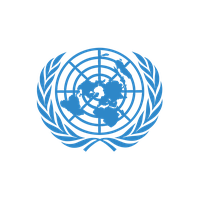
International Day of Democracy
Taking place on 15th September every year.
Encouraging the world's governments to strengthen democracy.
About the event
The International Day of Democracy provides an opportunity to review the state of democracy in the world. The Day was declared by the UN General Assembly in 2007, and it aims to encourage Governments to strengthen national programmes devoted to the promotion and consolidation of democracy.
The link between democracy and human rights is captured in article 21(3) of the Universal Declaration of Human Rights, which states: “The will of the people shall be the basis of the authority of government; this will shall be expressed in periodic and genuine elections which shall be by universal and equal suffrage and shall be held by secret vote or by equivalent free voting procedures.”
How to approach it
Democracy is obviously an essential concept to learn about and this day offers a great opportunity for students to think about what it really means. One key aim of today should be about widening the definition of democracy and introducing an understanding of its different, varied forms. To do this, discuss what democracy means to the students in your class. One general definition might be ‘where people get to make political decisions as a group’ or ‘where everyone gets to vote for representatives or in referendums’. Another might be linking democracy to particular systems such as the British parliamentary system or the American federal system. Encourage as many definitions as possible in order to show that democracy has many forms. Introduce concepts such as direct democracy, workplace democracy or organisational democracy to show that decision making at any level can be ‘democratic’.
Ultimately try to show here that democracy is a process, and not a particular system. This means that with any democratic process we should be asking “how well does this make group decisions?”, “how well does this represent everyone’s views?”. Involve your students in this discussion by asking: what makes a good democracy? You could have a class activity with different decision making structures and discuss which one works the best and why.
Organised by
United Nations

Conversation starter
Democracy is a system of decision making that takes everyone's opinion into account. You can have whole countries run by democracies right down to workplaces and community groups. The better the democratic process, the more accurately it represents people's opinions. What is one good thing about the British demoractic system and one thing that could be improved?




